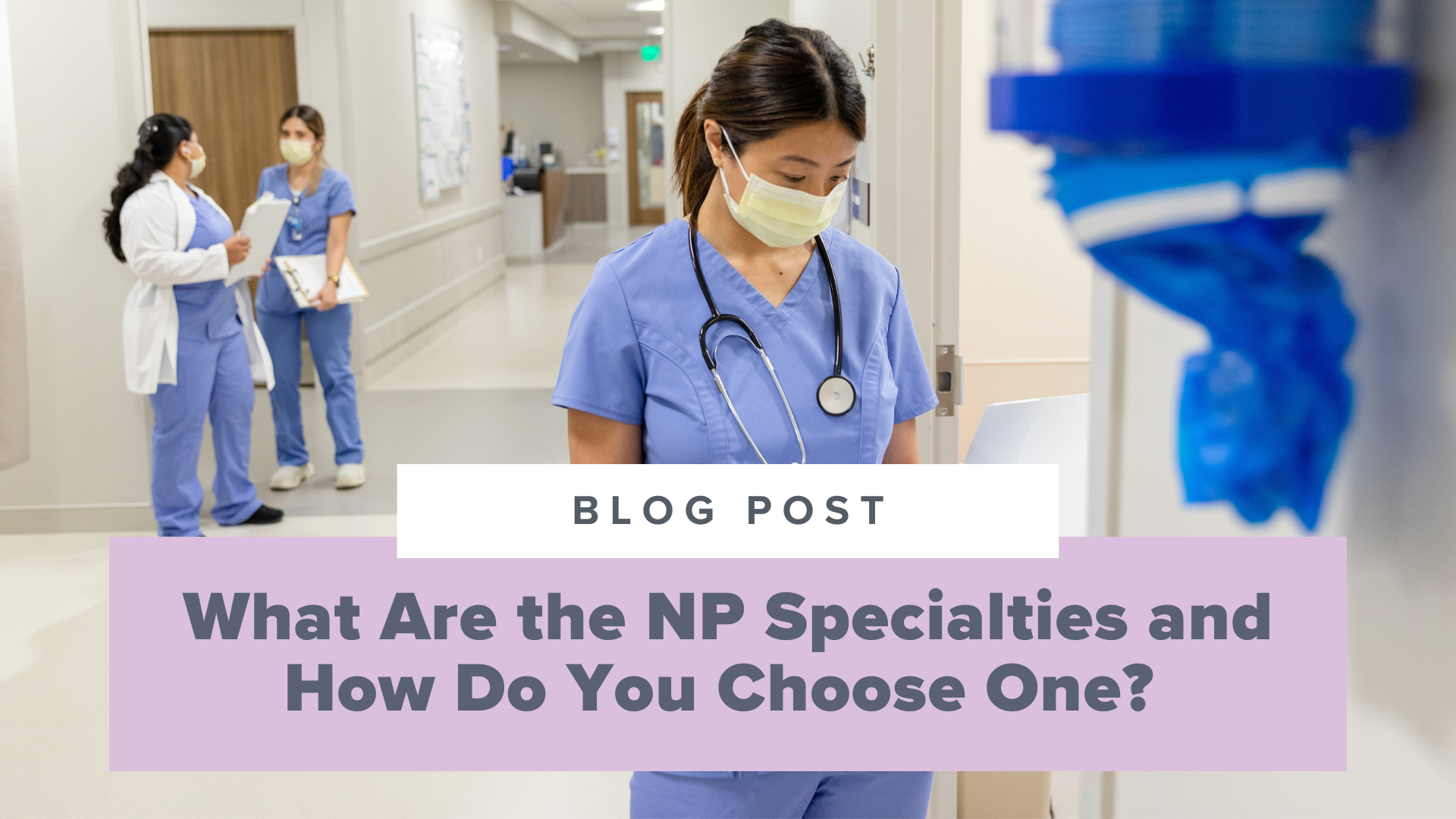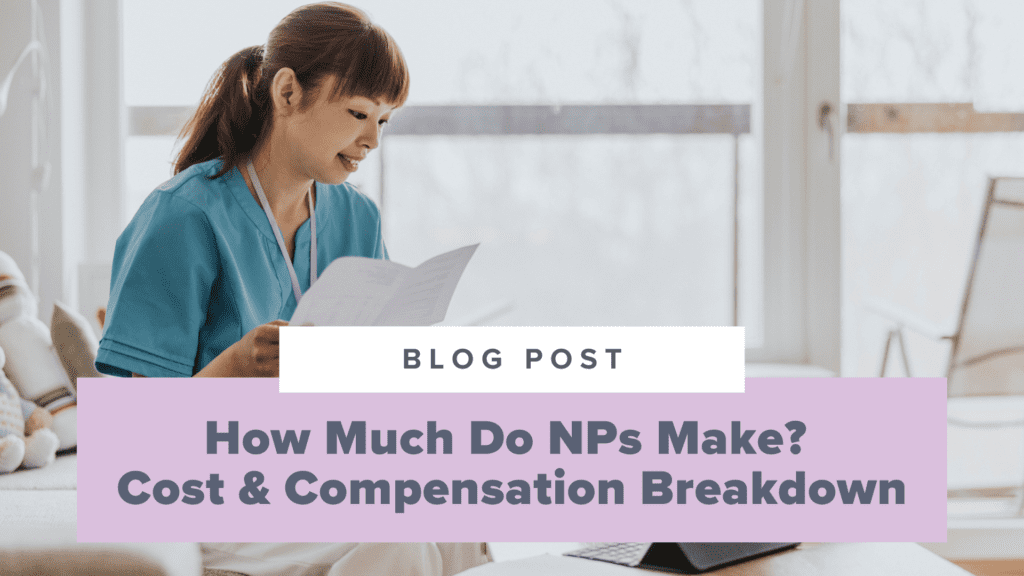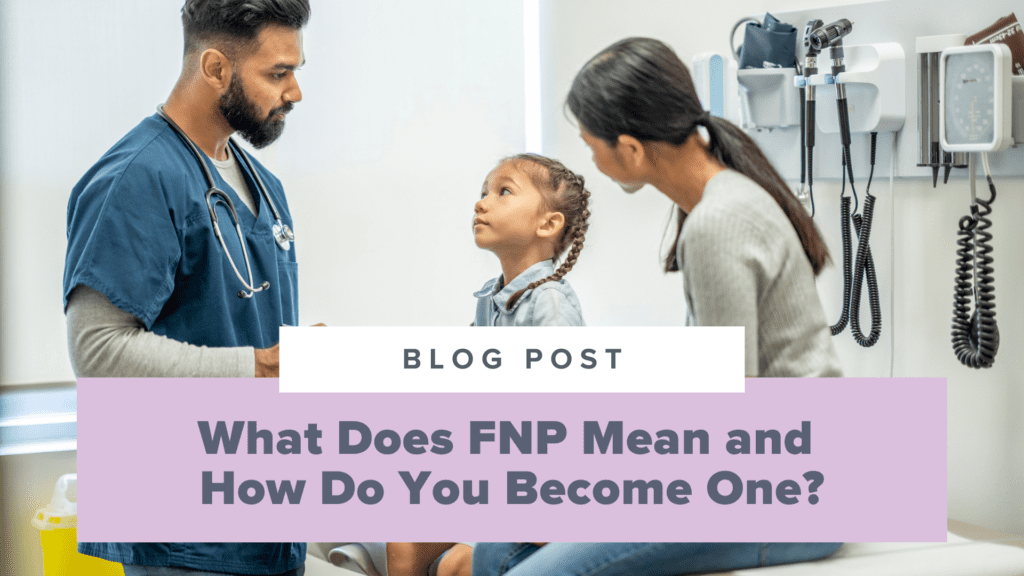What Are the Different Nurse Practitioner Specialties and How Do You Choose One?
- by
- Jun 10, 2024
- Articles

Deciding to become a nurse practitioner (NP) can be one of the most significant choices in your life. Your career options are diverse, and the demand for your services is limitless. However, you’ll encounter some crucial decisions on your journey towards your dream career. One of these will be deciding which among all the different nurse practitioner specialties resonates the most with you.
Your decision won’t be made easier by the fact there are so many nurse practitioner specialties to choose from! Among the most common nurse practitioner specialties are adult-gerontology primary or acute care (AGPCNP or AGACNP), psychiatric-mental health (PMHNP), family practice (FNP), women’s health (WHNP), and even pediatrics (PNP). You can also explore various subspecialties through formal programs or by accumulating experience in a specific field and passing a certifying board exam, like the emergency nurse practitioner (ENP) exam.
As you embark on this journey, here are some ideas to consider while choosing your nurse practitioner specialty!
What are the Different Types of Nurse Practitioner Specialties?
When it comes to the NP profession, there’s no one-size-fits-all approach. Each NP takes on a specialized role that aligns with their interests, skills, and experiences.
To help you start exploring your options, here are some of the most popular nurse practitioner specialties and what sets them apart:
Family Nurse Practitioner (FNP)
This is the most popular of all the nurse practitioner specialties, with 70.3% of all NPs choosing this certification route. An FNP is qualified to treat patients of all ages, from children to adults in the primary care setting. They diagnose and manage acute and chronic illnesses, prescribe medications, order and analyze diagnostic tests, and provide preventive care.
FNPs work in a variety of settings such as primary care offices, outpatient specialty clinics, and Urgent Care centers.
Adult-Gerontology Primary Care Nurse Practitioner (AGPCNP)
AGPCNPs provide care for older adults in community-based settings such as internal medicine offices, nursing homes, assisted living facilities, and outpatient specialty clinics.
These NPs focus on diagnosing, managing, and treating chronic illnesses while also helping patients manage their health.
Adult-Gerontology Acute Care Nurse Practitioner (AGACNP)
AGACNPs specialize in treating patients with acute and critical illnesses. They work in high-stress situations like emergency departments, intensive care units, and surgical units.
AGACNPs are trained to handle complex medical conditions like heart attack, stroke, respiratory failure, and kidney failure. They work closely with physicians and other healthcare professionals to deliver the best possible care.
Pediatric Nurse Practitioner (PNP)
As the name suggests, PNPs specialize in working with children from birth to young adulthood. They have specialized training in providing primary health care services to children, including preventive care like immunizations, well-child exams, and health screenings.
PNPs also diagnose and treat common acute and chronic health problems in children, including allergies, ear infections, and developmental delays.
Women’s Health Nurse Practitioner (WHNP)
WHNPs specialize in women’s reproductive health, including prenatal care, contraceptive counseling, fertility, and gynecologic conditions. They perform routine checkups, preventive care, and contraception counseling. WHNPs also diagnose and treat acute and chronic health conditions related to women’s reproductive systems.
Psychiatric-Mental Health Nurse Practitioner (PMHNP)
PMHNPs specialize in mental health services for patients of all ages. They can provide therapy, medication management, and support for mental health disorders. PMHNPs can work in various settings, including hospitals, community mental health centers, or private practices.
These are just a few examples of the many nurse practitioner specialties available. Keep in mind that this is not an exhaustive list as there are many other specialties within the NP field, like emergency nurse practitioners (ENPs). The key is to find what interests you and aligns with your career goals!
How to Choose the Right Nurse Practitioner Specialty For You
1. Identify who (or what) inspires you!
When it comes to choosing from among the different nurse practitioner specialties, think about the communities that truly resonate with your passion for learning and support, either while you were growing up, your time throughout nursing school, or even as a registered nurse. These are the amazing individuals you’ll engage with every single day, support, help with patient care, and be guided by for years to come.
Give it some thought. Do you absolutely adore spending time with children or older adults? If so, you might want to consider becoming a pediatric or even adult-gerontology nurse practitioner. Does providing “cradle to grave” care speak to your heart? Becoming a family nurse practitioner could be the perfect fit for you, as it gives you the ability to care for patients from infancy to older adulthood.
On the other hand, if you’re inspired to make a difference in the field of mental health, pursuing a career as a psychiatric nurse practitioner would be an excellent choice. This has become a popular path since the pandemic, which is great as the need for psychiatric providers has increased as well! And if you’re already working as a registered nurse in a hospital setting, becoming an acute care nurse practitioner can open up even more exciting hospital-based opportunities in the future.
Unless you’re already working in your intended specialty, there can be a noticeable gap between your ideal work environment and the day-to-day reality. But don’t worry—if you have a clear idea of the populations you hope to serve, consider shadowing a clinician or chatting over coffee with someone already in that field to gain better insight. This will give you a better idea of what their experience is within that specialty, and what they love or find challenging about it.
Even if you’re not currently in the healthcare field, chances are you’ve encountered someone who has inspired you to serve certain communities and influenced your choice to take on this adventure. Take a moment to reflect on your own experiences and evaluate how they can contribute to your future specialty choice. Your journey is just beginning, and the possibilities are endless!
2. Visualize the kind of lifestyle you enjoy.
When considering which of the different nurse practitioner specialties to choose from, it’s important to think about where and how you’d like to work. Nowadays, there’s a high demand for nurse practitioners, so there will be plenty of opportunities for you after graduation. If you’re already in the healthcare field, you’re familiar with the difference between working in a hospital and an outpatient clinic. Just keep in mind that hospitals usually prefer acute care nurse practitioners, which means the schedule and environment will be quite different from those of outpatient clinics. Outpatient clinics typically follow regular weekday and holiday hours, while hospitals may involve rotating shifts, including holidays and even on-call duties. Of course, there are some specialties that offer more flexibility than others. This is also another important thing to take into consideration when choosing a path or specialty.
If you’re new to healthcare or if you’re not sure about your specific goals yet, starting with a more general specialty like family or acute care nurse practitioner might be a good idea. Just because you are a family nurse practitioner doesn’t mean you’re locked into solely working in a family practice clinic. You can work in other outpatient specialties as well, like cardiology or endocrinology if that’s what you choose to do. There are endless possibilities!
In terms of pay, as a nurse practitioner, you can expect a competitive salary, although it can vary based on subspecialties and geographic location.
Remember, you’re embarking on an exciting journey in the healthcare field, and there are many paths to explore. Take your time, consider your options, and trust that you’ll find the perfect fit.
3. Remember that you don’t have to figure it all out now!
Lastly, when considering the different nurse practitioner specialties, remind yourself that it’s absolutely okay for your specialty to evolve over the years. Clinicians often begin with a broad experience, such as working in primary care or as a hospitalist, and through these experiences, they pivot to a subspecialty or pursue additional certifications. There are so many paths you can pursue (such as within education, a doctoral degree, or even a specialty as we have mentioned in this blog).
For example, when I applied to graduate programs, I knew that I wanted to keep my specialty as general as possible. This way, my career could take on different shapes over the decades. As a family nurse practitioner, I also wanted to spend some time practicing in primary care before considering an additional specialization.
As an experienced clinician, I became more appealing to employers even without having an additional board certification. Through years of working in the field and learning from patient encounters that truly inspired me, I eventually discovered my true calling. Once I reached that point, it became relatively easy to pursue another board certification.
Looking for more info?
I hope the reflections above gave you a good overview of the different nurse practitioner specialties, which you can use to carve out your own unique pathway. You’re embarking on a long and fulfilling journey!
If you’d like to keep exploring your future possibilities as a nurse practitioner, check out these other posts on the SMNP Reviews blog:
Search the Blog
Join our Facebook Group!
Get FREE support and encouragement from thousands of FNP/AGPCNP students and our NP Support team.
Learn More3 Study Hacks to Conquer Your NP Exam!
Download these tips that have helped thousands of students pass their NP board exams.
Download NowInstitutional Partnerships
Are you a faculty member and would like to bring Sarah Michelle’s resources to your school? Email us at nursinggroups@blueprintprep.com for special institutional pricing or click on the link below to learn more.
Learn MoreGroup Discounts
Are you a student and have 10 or more classmates interested in purchasing Sarah Michelle’s courses? Email us at nursinggroups@blueprintprep.com for special pricing.



